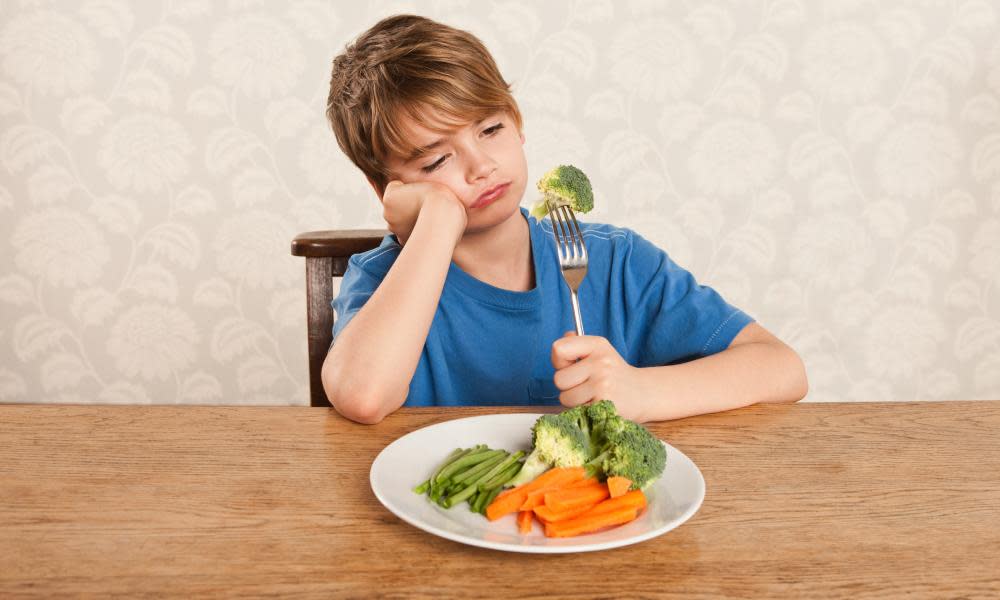Begging your kids to eat doesn’t make a shred of difference

When I was a child, it was received parental wisdom that the way you got a kid to eat was either to threaten them – “no pudding until you clear your plate” – or shame them with the reminder that there were starving people in the world. (Actually, I realise, my mother did neither of these things, but went for the third, discredited approach – emotional blackmail: “One more mouthful, just for me.”)
I don’t know if any of this worked, but, along with so many other rules about parenting, in the last 20 years it has been subject to thorough reassessment. Now, if you have a truculent eater, you are advised by paediatricians in the US not to go on about it. You are definitely not supposed to guilt them into eating, or raise the spectre of those less fortunate than them, or do anything at all to suggest that food, in the context of personal consumption, has a moral value and that your child’s relationship with it is indexed to your own emotional response.
'What’s in Madison’s lunch box?' I’ll ask my daughters slyly when they get back from preschool
What this means in practical terms is that you end up chucking out a lot of food and also that you, or at least I, become a sort of pathetic supplicant trying to sneak around the rules. I hear myself sometimes, trilling away like Margo from The Good Life trying to pass off unappetising snacks as sweets. “It’s just like candy!” I’ll say, shoving a piece of freeze-dried mango at my child – or even more tragically, a roast carrot – before walking away in a pantomime show of disinterest.
And while I’m relatively relaxed about TV and bedtime, and even managed to stifle a scream when my daughter licked a subway pole the other day, I have become undeniably weird in the way I talk about food. It has become a verbal tic, a kind of incantation along the lines that, as I long as I’m pushing fibrous snacks in their direction, I am keeping them safe from harm.
As in so much of parenting and life, the only consolation is to look at other people and think: “Well, at least I’m not doing it like that.” “What’s in Madison’s lunch box?” I’ll ask my daughters slyly when they get back from preschool. “Madison has gummy worms,” says one of them.
Oh does she, indeed; well Madison’s mummy hasn’t read the guidelines. Then, after wordlessly taking away the rejected fish fingers and peas, I let my daughter eat two cupcakes for dinner.
Save for letting them subsist on a diet of Skittles alone, or making them sit all night until they have finished their sprouts, I have a feeling that in the long run nothing I do will make all that much difference. Most of these rules seem designed to make parents feel as if we have more control than we do. Still, I hope I grow out of it. I have an image of myself, 40 years from now, mumbling: “Dried cranberries, anyone? Half a boiled egg? Guys? Guys? Does anyone want a banana?”
• Emma Brockes is a New York-based columnist for the Guardian

 Yahoo News
Yahoo News 
